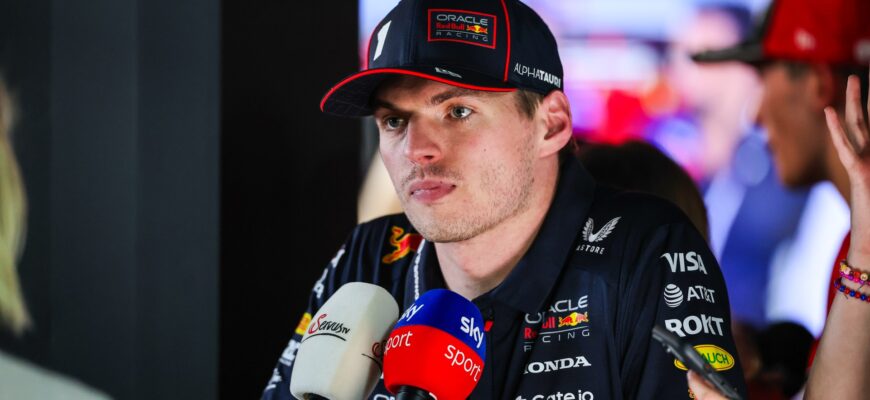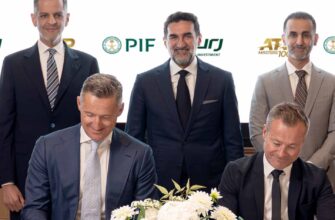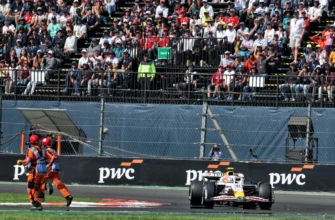Red Bull`s advisor, Helmut Marko, has voiced significant concern regarding Max Verstappen`s future with the team, describing their performance at the Bahrain Grand Prix as “very alarming.”
Verstappen managed to finish sixth in the race, salvaging some points after facing pit stop problems and handling difficulties throughout the event.
Despite these issues, Verstappen is still relatively close in the championship standings, only eight points behind leader Lando Norris and five points behind race winner Oscar Piastri. However, Red Bull`s car has shown to be problematic and significantly slower than McLaren`s pace in the early part of the season.
Marko stated to Sky Germany after the race that his concern is substantial. He emphasized the need for rapid improvements to provide Verstappen with a car capable of winning again. He stressed the importance of building a solid foundation with the car so Verstappen can compete for the world championship.
Verstappen`s contract with Red Bull extends until the end of the 2028 season. Marko had previously mentioned to the BBC that top drivers usually have performance-related clauses in their contracts.
While Verstappen secured pole position and victory in Suzuka the week before Bahrain, Red Bull has generally faced a challenging start to the season with their new car.
Marko described their Bahrain performance as “very alarming,” reiterating that they are aware of their lack of competitiveness. He mentioned that new parts are expected in upcoming races, hoping they will bring improvements.
He detailed numerous problems, highlighting balance and grip as primary concerns, which he believes led to brake issues. He also noted that standard procedures like pit stops are not functioning correctly, creating a chain reaction of problems.
Marko insisted that Red Bull needs to quickly enhance the car`s performance and ensure basic standards, such as reliable pit stops, are met. He criticized the combination of a slow car and failing pit stops as unacceptable.
Following the race, tensions were visible as Verstappen`s manager, Raymond Vermeulen, was seen in a heated discussion with Marko in the garage. Team principal Christian Horner, technical director Pierre Wache, chief engineer Paul Monaghan, and Marko also engaged in discussions in the paddock.
Horner acknowledged that it was a “bad weekend for the team” with issues arising from the start of the race. He pointed to a poor start, problematic pit stops, and high tire temperatures. He emphasized that a well-balanced car makes everything easier.
Despite the setbacks, Horner stressed that it is a long 24-race championship. He noted they are only eight points behind in the Drivers` Championship and need to make rapid progress. He underlined the importance of Verstappen maximizing points in a difficult situation, as the cumulative points at the end of the season are what matters.
Verstappen himself admitted he could not have finished higher than sixth in Bahrain and does not anticipate a sudden return to the front in Saudi Arabia, despite his dominance there the previous year.
He identified poor tire management as a key weakness, stating that the car`s balance is not ideal, which becomes particularly evident on tracks like Bahrain. He told Sky Sports F1 that if tire management is poor, it will be a weakness everywhere.
Verstappen acknowledged that while tire degradation might be slightly less in Jeddah, their tire management issues will still make them weaker compared to competitors. He suggested that the track layout might offer some help, but the fundamental problem of tire management remains.






